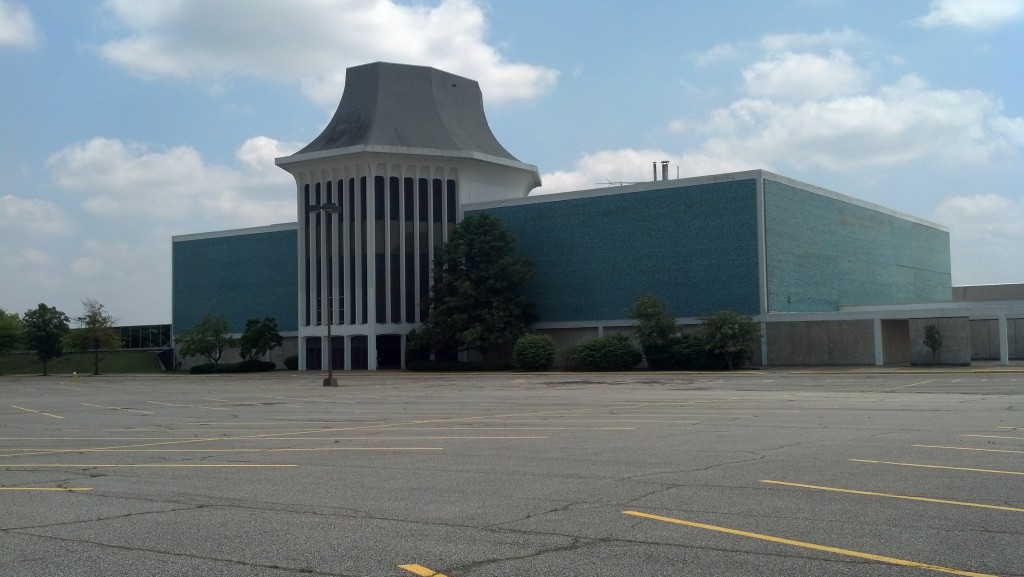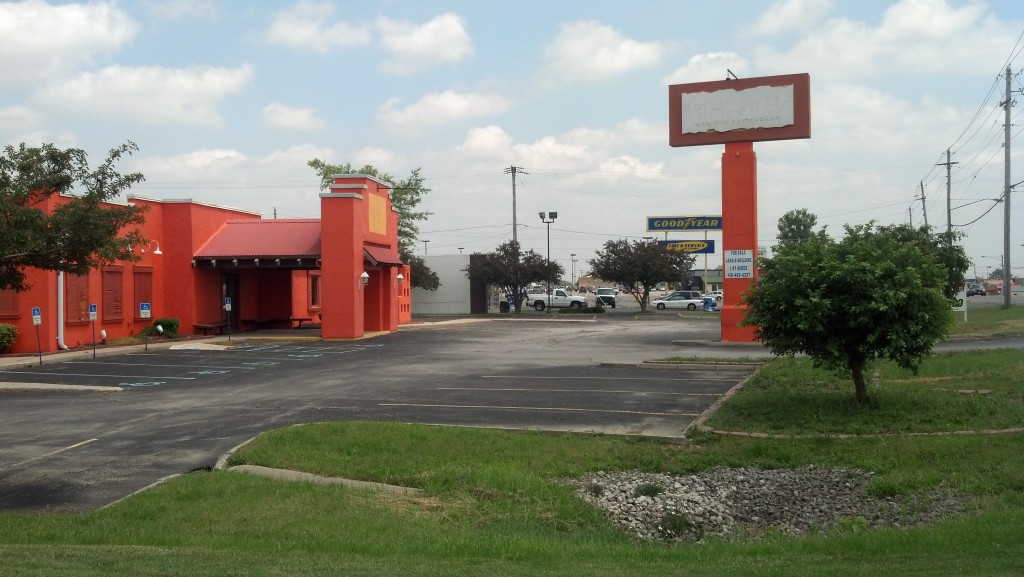
The grand Lazarus department store at the Richland Mall in Ontario, Ohio, sits empty. (Photo by Michael E. Grass)
ONTARIO, Ohio — As I was driving on the Lincoln Highway on my way out of the Mansfield area, I came across a gigantic structure with a towering central section capped by a hat-like roof. It was surrounded by a completely empty sea of parking. There were no signs of life, but it had all the hallmarks of a shopping mall department store.
This is the Richland Mall, or at least the former Lazarus, the now-defunct Columbus-based department store chain that opened a branch here in 1958. It’s a bold design, something you can tell was meant to impressive drivers heading by on the Lincoln Highway, known locally as W. 4th Street. It caught my eye, so I pulled into the parking lot.
Instantly, Arcade Fire‘s 2010 album The Suburbs came to mind, the lyrics from “Sprawl II (Mountains Beyond Mountain),” in particular:
Sometimes I wonder if the world’s so small,
That we can never get away from the sprawl,
Living in the sprawl,
Dead shopping malls rise like mountains beyond mountains,
And there’s no end in sight,
I need the darkness someone please cut the lights.
The Richland Mall is not dead, however, only the former Lazarus. Still it’s a symbol of the somewhat unstable state of suburban retail. It’s no secret that the shopping mall industry isn’t what it used to be.
Malls across the country are in “terminal decline.” Very few new ones are being built today. Older shopping malls are being repurposed as town centers or similar mixed-used retail environments that usually look more like traditional downtown shopping streets. There are a handful of these suburban transformations that have been completed or are otherwise planned or underway in the Washington, D.C., area, where I live.
While this pivot away from suburbia certainly isn’t universal across the country, more and more, Americans are rediscovering their urban centers, which is a good thing.
Along the Lincoln Highway near the Richland Mall, I discovered more evidence of the not-so-vibrant health of this suburban corridor, home to the shuttered General Motors Mansfield-Ontario Metal Center, which closed in 2010. There are boarded-up restaurants, strip-mall vacancies and other signs of stunted commercial life.
This area is not a ghost town in any regard. It was actually fairly busy when I drove through on Saturday afternoon. But I wonder: What will happen to these suburban relics that have no future? Suburbia is often designed to be cheap and easily replaceable.
In preservation circles, there’s an ongoing debate over the future of Brutalism, which has been deemed aesthetically ugly and harmful to healthy, vibrant communities but also important to our architectural heritage.
The American shopping mall is undoubtedly an icon. Will we as a society preserve these titans of suburbia just as the countless towns along the Lincoln Highway have preserved their historic courthouses?
That question will surely be debated as suburbia continues to age.


Pingback: Jack Kerouac (And Sal Paradise) Slept Near Here | The Lincoln Highway Guide